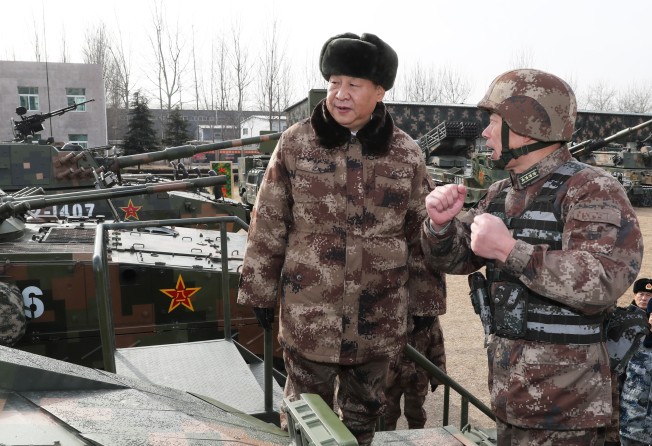China military reforms help to ensure political security
With the People’s Armed Police now falling under only the Central Military Commission, the party has absolute control of the armed forces

After sweeping restructuring and an anti-graft campaign that have asserted the authority of the Communist Party, the People’s Liberation Army (PLA) has emerged from President Xi Jinping’s military reforms with restoration of its representation on decision-making party standing committees and sole command of the People’s Armed Police (PAP).
What has set the PAP apart until now is dual military-civilian command. This served the purpose of empowering lower level authorities to deploy the 1.5 million-strong PAP to tackle natural disasters and other emergencies. But it also created the perception of a latent challenge to top central leaders.
An incident during events that led to the downfall of disgraced former Chongqing party chief Bo Xilai would have done nothing to change this perception, when armed police were sent to Chengdu, apparently on Bo’s orders, after former Chongqing police chief Wang Lijun sought refuge in the US consulate following a falling-out with Bo.
Observers have speculated this may have played a part in the decision, effective from this month, to put the PAP under the sole command of the Central Military Commission, which oversees the armed forces, instead of the joint command of the commission and the State Council, China’s cabinet.
According to the military, sole command by the commission is meant to ensure the party’s absolute control of the armed forces and to guarantee the political security of the regime.
Representation on party standing committees, the main decision-making bodies around the country, enabled the PLA to speak up for military interests. But it was abruptly discontinued in 2016 when the central government began a massive restructure of the armed forces, including reducing the payroll by 300,000.
Now that it is being restored, the military will not only regain influence in affairs involving local garrisons but also the politically sensitive issue of the welfare of an inflated number of retired soldiers. It also dovetails with the removal of joint civilian command of the PAP. And now that deployment of the PAP for disaster response and other emergencies is solely the province of the PLA, communications and coordination between the civilian and military authorities is crucial.